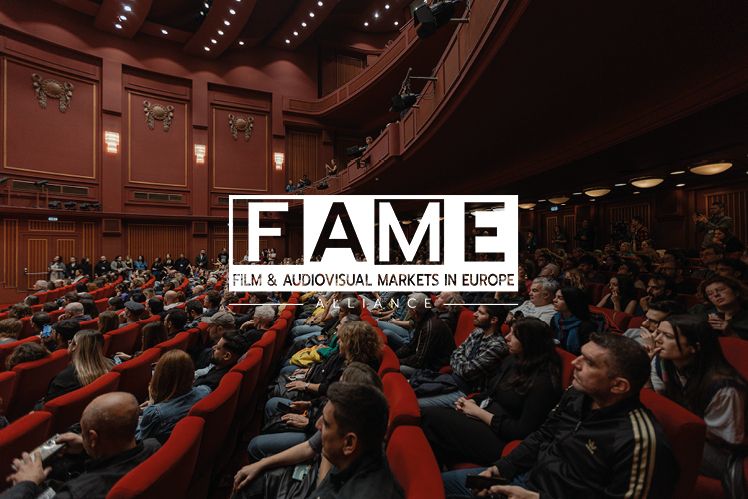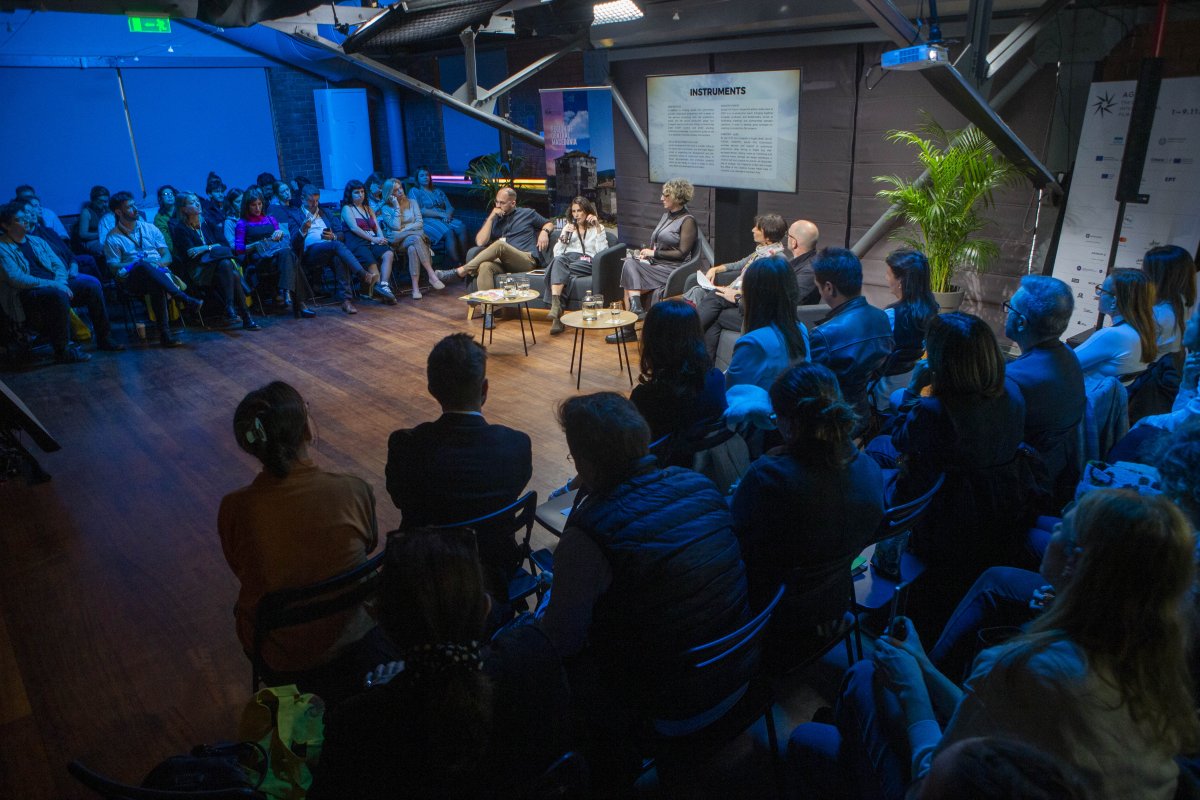59th Thessaloniki International Film Festival
[1-11 November 2018]
Agora Training Day
The Agora Training Day took place on Tuesday, November 7, at Warehouse C, as part of the 59th Thessaloniki International Film Festival in collaboration with CED Media Greece. Well-established professionals from the film industry shared valuable information and practical advice with young producers and film directors, offering a series of structured and useful guidelines that enlighten the ways and paths to achieve international co-productions and partnerships.
At the first part of the Agora Training Day, a delegation of the Shanghai International Film Festival, comprised of Jianwen Shen (director), Edward Xu (Manager SIFF Market) and Qi Yan (manager), presented a thorough overview of a festival that was first held in 1993 and grew to become one of the largest and most outward-looking film festivals in Asia.
Facts and figures on the 2018 Shanghai International Film Festival:
A brief overview of the Shanghai International Film Festival “Market” section
Additional Information
At the second part of the 2018 Agora Training Day of the 59th Thessaloniki International Film Festival, Venia Vergou, the director of the newly formed Hellenic Film Commission (HFC), presented a comprehensive guide to all the actions and steps undertaken by the Hellenic Film Commission, aiming to attract foreign productions in Greece.
Which are the main functions of the HFC?
Memberships of the HFC
*Corfu is Greece's candidature for the Best European Location Award bestowed by the EUFCN
Upcoming events
Things to keep in mind regarding film permits:
Greece's comparative and strategic advantages in attracting foreign productions:
Actions and steps taken (or planned to be taken) in the right direction:
At the third part of the 2018 Training Day of the 59th Thessaloniki International Film Festival, Lina Manolopoulou, representative of the National Centre for Audiovisual Media and Communication (EKOME), provided the audience with a thorough analysis on the Greek Cash Rebate system.
What is the minimum amount of eligible expenses in Greece?
* Overall, an amount of 75m euros is guaranteed through the Greek Public Investment Programme for the period 2018-2022
** There are no limitations concerning the duration of the submitted projects
List of non-eligible candidatures for the Greek Cash Rebate Programme:
Applications:
In the fourth part of the Agora Training Day, Vicky Miha (Heretic Asterisk Film and Media Consulting agency) shared her professional experiences regarding marketing techniques.
What sort of film materials can be used for presenting a filmic project?
Business-to-business materials consist of the industry inside the industry, so to speak. These materials are used to communicate one’s project to the industry professionals in order to find distributors and sales agents.
The latter is used to communicate a project to the audience so, upon release, to select the right kind of marketing materials for introducing the film to the regular viewers. A lot of studies provide data that look into the European audience’s current disposition. European films are considered original, thought-provoking, but also “slow” and full of heavy storylines. According to an 800-page study, trailers are considered the most effective tool for persuading people to go to the cinema. Also, the number one marketing technique is word of mouth. What your peers say about a film, for instance. This is something that you cannot buy. These long studies are necessary in order to gather data that will assist in presenting a film to the industry.
What are the most important components for a marketing analysis?
As to the basics of a marketing strategy, what are the most important marketing tools?
This depends on whether we are talking about a BtoB or BtoC marketing strategy. Furthermore, we have to distinguish between the tools for the film development and the tools for its release. There are many instances in which a film is properly marketed during development phases. Some of the tools are the following:
How important is a trailer for a film?
- It is the most important element. In order to succeed, trailers and teasers must aim to convince the audience to come to the film. In order to do that you must think carefully how far you intend to go in terms of plot revelation. You also have to always keep in mind who is going to be your audience. Be realistic and reflect upon your expectations regarding the film and its trailer. A good trailer needs very careful handling. Moreover, trying to create a trailer before actually completing the film can turn into a really complex procedure.
- Apart from the trailer, let’s not forget the film title. It is very important in terms of marketing. For instance, you cannot present a new film with a title that has being used very recently or with a title that has nothing to do with your film’s content. You have to make extensive research regarding your title.
- Last but not least, the poster. Try to create posters from early on. Give instructions to the photographer so that you can do a mini shot for the poster during filming on set. It would be easier to have a clear idea about the poster since the beginning. Everything becomes simpler if you are prepared. For your poster you can use the AIDA model (Attention, Interest, Desire, Action) in order to convince people, grab attention and raise awareness.
How should I use the social media platforms?
You have to always answer three main questions. How, what and when. Social media are often misused. It is considered a very cheap channel for marketing your project. If you decide to do it, do so with a plan and a strategy. These platforms are called social for a reason. In order to achieve notoriety, you have to provide something different, to find a unique voice for your film.
At the fifth and last part of Training Day entitled “The World is Waiting: Blockchain and New Ways of independent Film Distribution” Jordi Wijnalda, curator and content coordinator of Cinemarket, spoke about Blockchain and Cinemarket online company.
What is blockchain?
Blockchain can be seen as a combination of technology and philosophy that goes back to the initial potential of the internet, recreating the status quo of our offline life in the online world. A lot of the power structures that exist in the offline world (governments, banks etc.) are being replicated in the online world. Blockchain is one of these initiatives that try to create wedge on what we are doing with the internet and make more things possible for ourselves. One of the most famous examples of blockchain in the 2010s is the cryptocurrencies such as the Bitcoin, that is the attempt to create a new currency that exists independently.
What is its relation with the film industry?
Blockchain promotes transparency, accessibility and security. It helps to transform the relations from centralised into decentralised, and consequently achieve a sense of equality and interconnection.
Recently, companies are starting to step into blockchain activities regarding film, because this strategy can put the power back into the hands of the film’s original creators and help them map the trajectory of their filmic product without excessive use of intermediaries and, above all, in full transparency. Since 2010, a lot of movie distribution is moving to online platforms. That seems very exciting and prosperous, but I admit that we are not completely ready for it.















